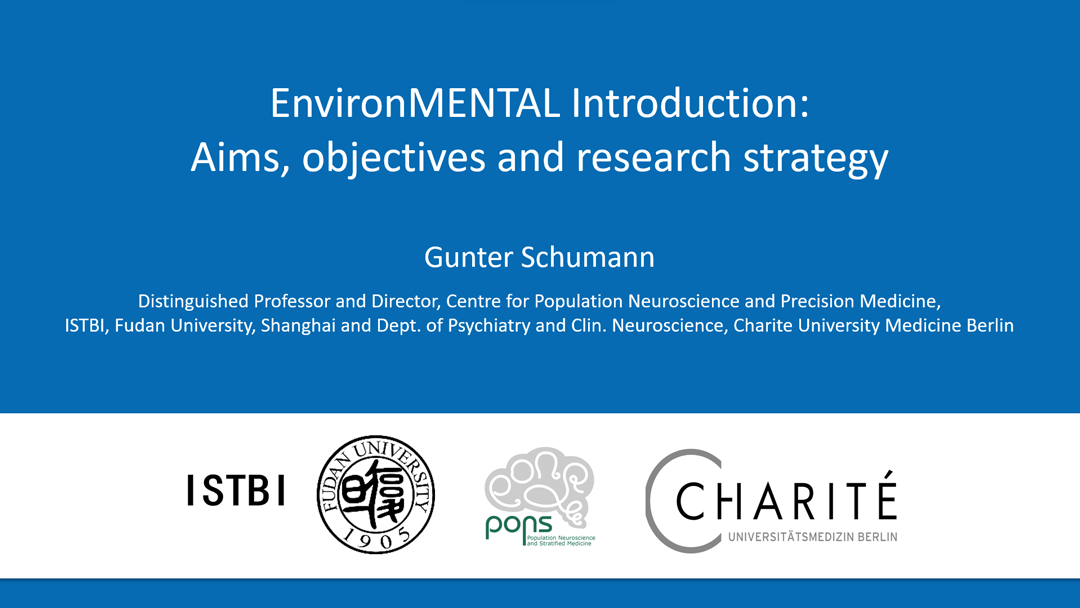Gunter Schumann,
Centre for Population Neuroscience and Stratified Medicine (PONS), ISTBI, Fudan University Shanghai and Dept. of Psychiatry and Neuroscience, Charité University Medicine, Berlin.
Centre for Population Neuroscience and Stratified Medicine (PONS), ISTBI, Fudan University Shanghai and Dept. of Psychiatry and Neuroscience, Charité University Medicine, Berlin.
‘environMENTAL – Reducing the impact of major environmental challenges on mental health’ will investigate how some of the greatest global environmental challenges, climate change, urbanisation, and psychosocial stress caused by the Covd19-pandemic affect brain health during the lifespan, and develop interventions aimed at prevention and early intervention. Leveraging federated cohort data of over 1 million European citizens and patients enriched with deep phenotyping data form large scale behavioural neuroimaging cohorts, we will identify brain mechanisms related to environmental adversity underlying symptoms of depression, anxiety, stress and substance abuse. By linking population and patient data via geo-location to environmental data derived from remote sensing satellite measures, climate models as well as digital health applications, our interdisciplinary team will develop a neurocognitive model of multimodal environmental influences defined by transdiagnostic symptom groups of mental illness and their brain correlates. We will uncover the molecular mechanisms underlying this model using multi-modal omics analyses, 3D-brain organoid aggregates and virtual brain simulations. This work will provide an integrated perspective for each individual that incorporates the genetic and environmental influences on brain systems and psychopathology and behaviour, across the lifespan and spectrum of functioning, which we will apply to develop risk biomarkers and stratification markers for different disease mechanisms. Based on the mechanistic knowledge generated, we will then identify compounds targeting causal mechanisms of disease and develop in close collaborations with stakeholders adapted digital health interventions using virtual reality that target symptom clusters defined by shared brain mechanisms. Together, this project will lead to the development of objective biomarkers and evidence-based interventions that will significantly improve outcomes of environmentally-related mental illness.



